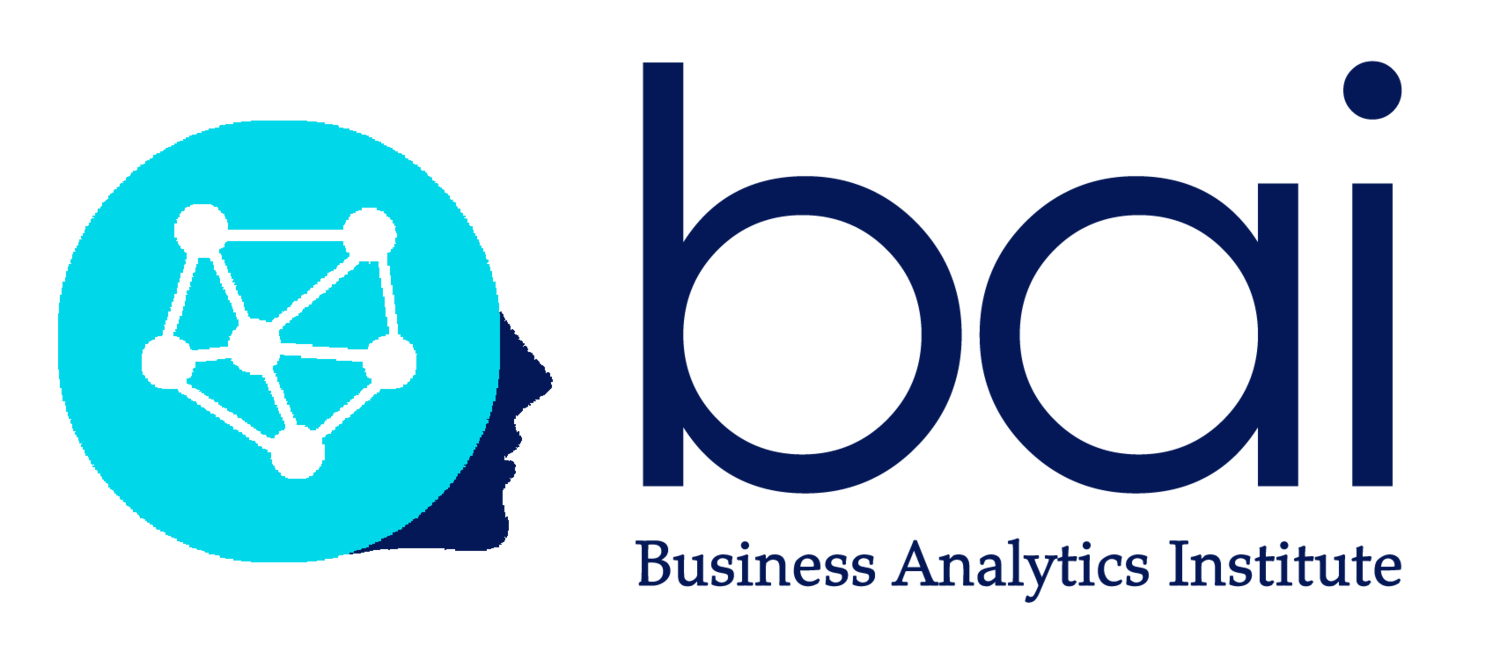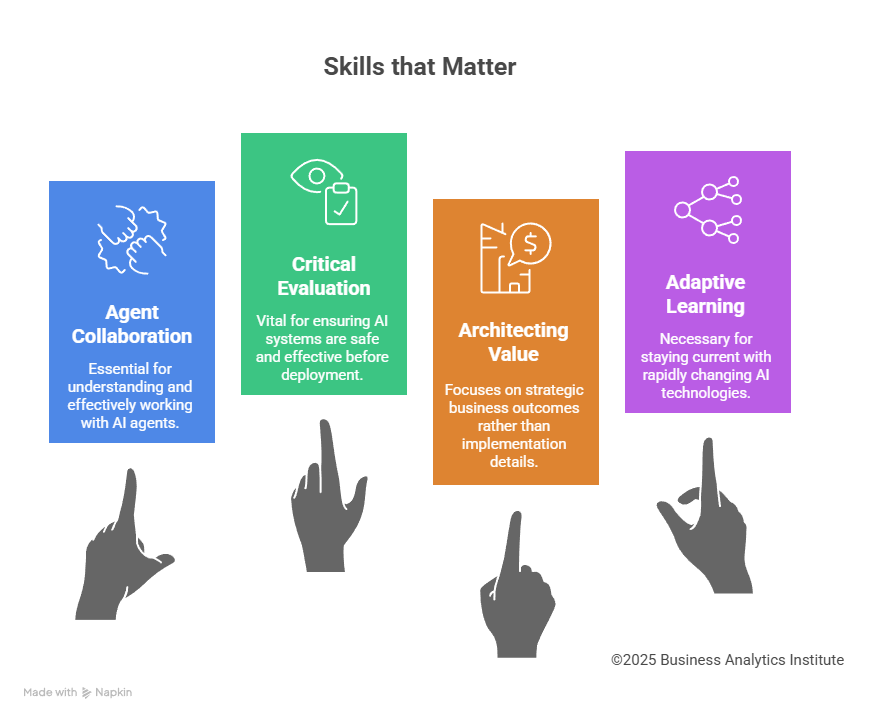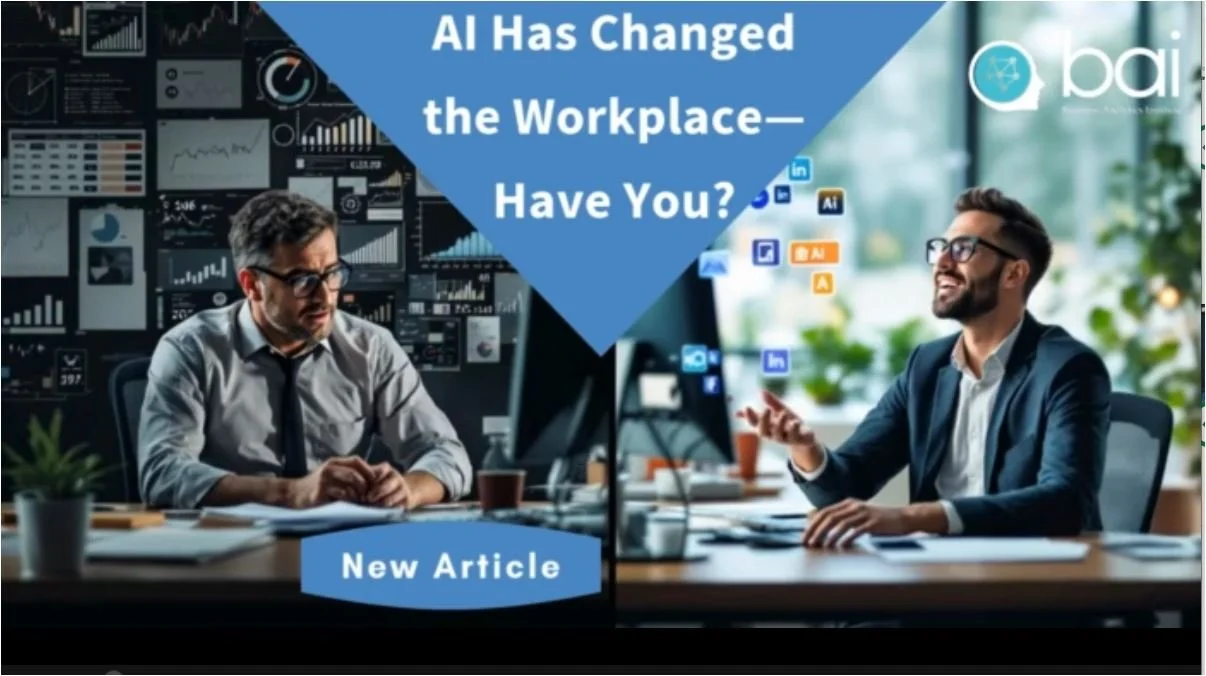Did AI’s Magic Just Make your Job Disappear?
Your Career Is Still on Track —But the Road Ahead Has Taken a Sharp Right Turn
The AI agents arriving in your workplace aren't just another wave of technology—they're performing a different kind of magic. Unlike stage magic where objects simply vanish, these autonomous prestidigitators are capable of pursuing complex goals, making decisions, and advancing work in the blink of an eye. For graduate students and working professionals navigating their careers, the question isn't whether AI's magic will make your job disappear—it's whether you'll master the magic before it masters you.
Why This Wave Is Different
Previous waves of automation followed predictable patterns. ATMs didn't eliminate bank tellers; spreadsheets didn't end accounting careers. Agentic AI systems, however, represent something fundamentally different.
These systems don't merely automate routine tasks—they address high-level objectives and independently determine how to achieve them. Anthropic's Claude navigates software interfaces autonomously. Cognition AI's Devin designs, writes, debugs, and deploys entire software applications with minimal human oversight. Klarna's customer service agent now handles work equivalent to 700 full-time employees.
AI agents aren't designed to eliminate only repetitive work. They handle sophisticated cognitive labor—research, analysis, document creation, code generation—tasks that were once the exclusive domain of knowledge workers.
From Execution to Orchestration
Whether you're an engineer or a manager, your role is transforming. The work is shifting from executing tasks to setting goals and evaluating outcomes.
Consider legal research. Thomson Reuters' CoCounsel autonomously searches thousands of documents, formulates research strategies, and synthesizes findings. Junior associates no longer spend weeks reviewing case law. Yet someone must still frame the research question, evaluate whether the agent's analysis addresses the actual legal issue, and determine the practical implications.
Software development follows similar patterns. Research shows GitHub Copilot users complete tasks 55% faster (Peng et al., 2023), but effectiveness depends on knowing how to prompt contextually, when to trust the output, and when to override suggestions. The valuable skill isn't writing every line of code—it's architecting solutions and verifying that generated code actually solves the right problem.
This creates what we call the "judgment premium." Your value increasingly lies in:
Articulating Goals: Translating ambiguous objectives into specifications agents can act on
Judging Context: Handling edge cases where rules don't clearly apply
Handling Exceptions: Managing situations that fall outside agent training
Managing Stakeholders: Navigating human relationships agents can't replicate
Monitoring Business Value: Critically evaluating whether agent outputs actually achieve your goals
The Workplace as Hybrid Ecosystem
Organizations are no longer just implementing AI tools—they're restructuring core processes around multi-agent systems.
Salesforce's Agentforce enables enterprises to deploy specialized agents for sales, service, and marketing that coordinate with each other and escalate to humans when needed. Microsoft's Copilot Studio enables custom agent deployment across business functions. These aren't passive applications—they're persistent team members with defined roles and responsibilities.
This creates novel management challenges. Research published in Nature Human Behaviour found that introducing autonomous agents into collaborative work fundamentally altered team dynamics, communication patterns, and decision-making processes (Rahwan et al., 2019). You can't simply plug agents into existing workflows and expect business as usual.
Moreover, AI agents work continuously. They advance projects overnight, across time zones, without rest. This enables unprecedented efficiency gains but also blurs work-life boundaries in which catastrophic failures can cascade before anyone notices. When your agent colleagues never stop, what does "leaving work at the end of the day" even mean? And who's watching when things go wrong at 3 AM?
Human Skills That Matter Most
Several capabilities become crucial in this new landscape:
Agent Collaboration as Meta-Skill: Understanding what agents can reliably accomplish, where they fail, how to prompt effectively, and when to intervene becomes as important as domain expertise itself.
Critical Evaluation: Knowing how to rigorously test and evaluate AI systems before deployment, understanding where risk assessments are needed in complex multi-model systems, and making informed go/no-go decisions are now critical professional skills.
Architecting Value: Plan how to deliver value to the business rather than implementation details. Focusing on "what should be achieved" rather than "how to do each step."
Adaptive Learning: As agent capabilities evolve rapidly, your ability to continuously update your understanding and adjust your working methods matters more than any static skill set.
The Economic Reality
Business models across industries are shifting from labor-intensive to agent-intensive operations. This creates "economies of agency"—companies that successfully deploy agent ecosystems can scale knowledge work with near-zero marginal costs.
How will these economies of agency shape the road ahead?
Opportunity: Organizations deploying agents effectively can accomplish more with existing teams, potentially increasing individual impact and compensation for those who master agent orchestration.
Risk: Routine cognitive work becomes commoditized. If your job primarily involves information gathering, standard analysis, or document drafting—tasks agents increasingly handle—your current role will transform significantly.
Uncertainty: We don't yet know whether agent deployment primarily augments workers (making everyone more productive) or displaces them (reducing headcount needs). Early evidence shows augmentation predominating, but long-term dynamics remain unclear.
Research from MIT suggests different trajectories for different roles (Dell'Acqua et al., 2023). High-skill professionals who effectively leverage agents may see dramatic productivity gains. Mid-skill positions involving routine cognitive work face greater displacement risk. However, these aren't predetermined outcomes—they depend on organizational choices and how rapidly individuals adapt.
What This Means for You
If You're Finishing Your Degree:
Don't just develop technical depth in your domain. The future belongs to professionals who can design agentic systems that enhance collaborative intelligence—systems where humans and AI agents work together, each contributing their unique strengths. This requires understanding not just how to build agents, but how to architect them for genuine human-AI collaboration.
Focus your learning on three critical dimensions:
First, master the principles of artificial social intelligence—how agents perceive social context, interpret human intentions, and adapt their behavior to collaborative settings. Agents that succeed in real workplaces don't just complete tasks; they understand stakeholder needs, recognize when to escalate decisions, and communicate in ways that build trust rather than create friction.
Second, develop skills in evaluating tangible business returns. Every agentic system you design must answer the fundamental question: What measurable value does this create? Learn to define success metrics, conduct ROI analyses, and demonstrate impact in terms that matter to organizations—efficiency gains, quality improvements, revenue growth, or risk reduction.
Third, cultivate the judgment and interpersonal skills that make collaborative intelligence possible. Understand that your first job may involve roles that didn't exist when you started your program: collaborative intelligence architect, human-AI interaction designer, agent value analyst.
The collaboration patterns you develop early will compound throughout your career. Seek training programs that emphasize hands-on design of contextual AI systems and practical evaluation of their business impact.
If You're Already a Working Professional:
Use Claude, ChatGPT, or Copilot for actual work tasks while thinking of the larger picture. Your goal isn't just task completion—it's understanding how to design workflows aimed at fostering collaborative intelligence..
Ask critical questions as you work: Where does the agent add value to the business versus merely creating the appearance of productivity? What would make this agent a better collaborator? How would you measure whether this interaction improved the business outcome? What social cues or contextual information is the agent missing?
Identify which aspects of your role involve judgment, relationship building, and contextual decision-making versus routine execution. Double down on the former while learning to delegate the latter—but never delegate without guardrails. Build expertise in evaluating agent outputs against tangible business objectives.
Don't wait for your organization to provide training. Seek programs that teach you to design agentic systems focused on collaborative intelligence and artificial social intelligence. The ability to create agents that genuinely enhance human capabilities—rather than awkwardly mimicking them—creates tremendous competitive advantage.
Most importantly, learn to quantify business value. Whether you're deploying an agent for customer service, data analysis, or content creation, develop frameworks for measuring its actual contribution to business goals. Agentic systems that can't demonstrate tangible returns won't survive budget reviews.
If You're Leading Teams:
Recognize that deploying agents isn't a technology decision—it's an organizational transformation requiring new governance structures, verification systems, and a fundamental cultural shift toward collaborative intelligence.
Your challenge is twofold. First, you must design agentic systems that genuinely enhance your team's capabilities rather than creating new bottlenecks or quality issues. This means moving beyond vendor promises to rigorous evaluation of business value. Which processes will truly benefit from agent deployment? Where will automation undermine rather than enhance performance?
Second, you must invest in developing your people's capabilities in artificial social intelligence. Your team needs to understand not just how to use agents, but how to design human-AI workflows that leverage each party's strengths. They need skills in prompting, in quality verification, in contextual judgment—and critically, in evaluating whether agent deployments deliver measurable returns.
Consider training investments that focus on designing collaborative intelligence. Programs that teach teams to build contextual AI systems, evaluate their business impact, and iterate based on real-world performance create lasting organizational capability. The organizations that succeed will be those where humans and agents complement each other effectively, with clear accountability for tangible business outcomes—not where agents simply replace workers or create the illusion of innovation.
Don't Leave Your Future to Chance
The outcomes are not automatic. How agentic AI affects your career depends on choices—personal, organizational, and societal.
You can shape this transition rather than simply experiencing it. The key is developing practical fluency with agentic systems while cultivating the uniquely human capabilities that complement them—judgment, contextual reasoning, and criticl thinking.
This requires more than reading articles or taking online courses. It demands hands-on experience building, deploying, and evaluating AI agents in realistic business contexts. It requires understanding not just the technical mechanisms but the organizational dynamics, the ethical considerations, and the strategic implications.
Programs like the 2026 BAI Winter School (January 28-February 7, 2026) offer immersive experiences where graduate students and working professionals work alongside international peers to design contextual AI models and agentic systems for real-world challenges in communications, transportation, and manufacturing. Participants develop practical skills in building agents that sense, reason, communicate, and act—while keeping humans in the loop. More importantly, they learn to evaluate the business value these systems create and navigate the organizational transformations they require.
Whether through such intensive programs, self-directed experimentation, or workplace learning, the essential step is starting now. The transformation is already underway. The question isn't whether your work will change—it's whether you'll actively shape how it changes or passively respond to changes made by others.
AI agents are already shaping the future of your business. Are you?
Selected References
Blackman, R. (2025, June 13). Organizations aren't ready for the risks of agentic AI. Harvard Business Review.
Dell'Acqua, F., McFowland, E., Mollick, E. R., Lifshitz-Assaf, H., Kellogg, K., Rajendran, S., ... & Lakhani, K. R. (2023). Navigating the jagged technological frontier: Field experimental evidence of the effects of AI on knowledge worker productivity and quality. Harvard Business School Technology & Operations Mgt. Unit Working Paper, (24-013).
Mayer, H., Yee, L., Chui, M., & Roberts, R. (2025, January 28). Superagency in the workplace: Empowering people to unlock AI's full potential at work. McKinsey Digital.
Peng, S., Kalliamvakou, E., Cihon, P., & Demirer, M. (2023). The impact of AI on developer productivity: Evidence from GitHub Copilot. arXiv preprint arXiv:2302.06590.
Rahwan, I., Cebrian, M., Obradovich, N., Bongard, J., Bonnefon, J. F., Breazeal, C., ... & Wellman, M. (2019). Machine behaviour. Nature, 568(7753), 477-486.
Stave, J., & Kurt, R. (2025, May 22). Agentic AI is already changing the workforce. Harvard Business Review
Dr. Lee Schlenker is the Director at The Business Analytics Institute, where his research focuses on the intersection of artificial intelligence, organizational transformation, and the future of work. For more information about the BAI Winter School or to connect, visit baiwinter.com or contact info@baiwinter.com.
What aspects of your work could agents potentially handle? What would you focus on if freed from routine cognitive tasks? Share your thoughts in the comments.






